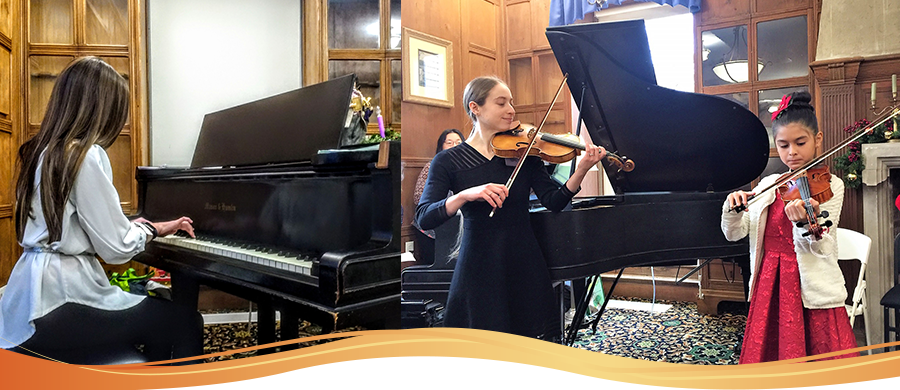Violinist age 10 plays Schubert Sonatina in D, third movement
Viennese composer Franz Schubert lived only from 1797 to 1828, but he managed to compose a vast amount of music in that short time – over 600 songs, seven symphonies, a large amount of piano and chamber music (music for a small group of players), operas, and church music.
The 12th of 14 children, his musical gifts were obvious early on. He started piano lessons with his brother at 5, and violin lessons with his father at 8, but he soon outgrew their ability to teach him. After finishing his training he became a schoolteacher and also gave private music lessons, earning just enough money for his basic needs, including clothing, manuscript paper, pens, and ink, but with little to no money left over for luxuries. His life was never easy, but he did have a small circle of admirers in Vienna. Today, though, Schubert is considered one of the greatest composers of Western classical music, and his heartfelt music continues to be popular.
A sonata is a composition for one or two (occasionally three) instruments, frequently including a piano; and a sonatina literally means a “little sonata” – something shorter and easier. The piano is an equal partner here, with each performer taking turns to have the tune or the accompaniment. This lively movement in 6/8 time is based on a gigue, or jig.



